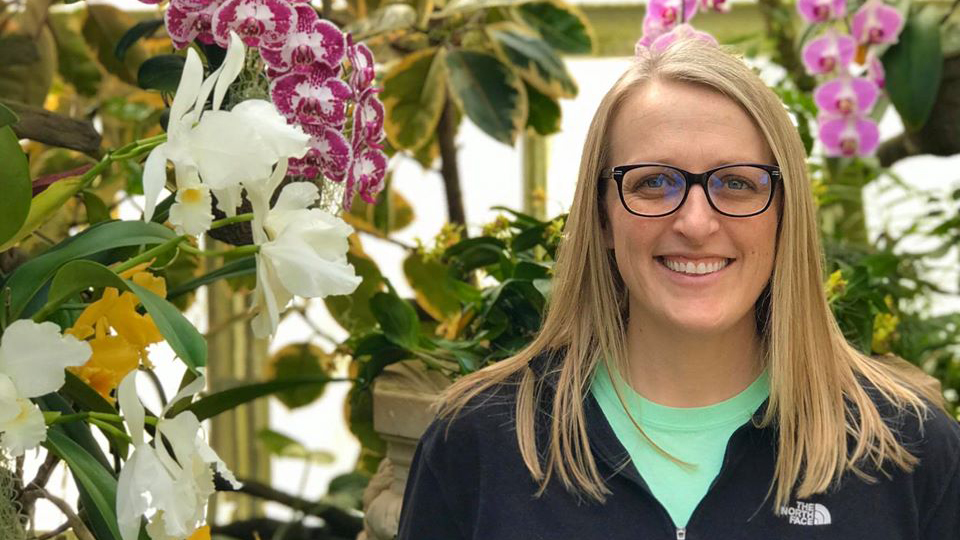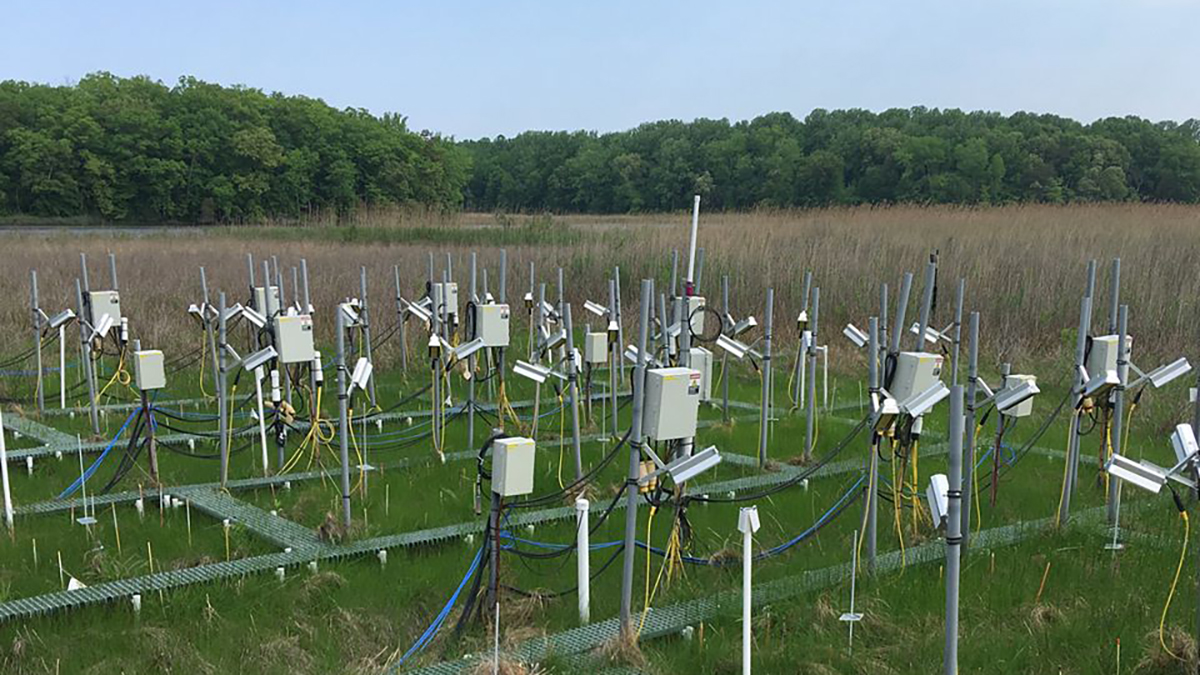Wednesday, Jan 27, 2021
Climate change study features work of Dr. Kerrie Sendall
by Adam Grybowski
The U.S. Department of Energy recently awarded a team of collaborators that includes a Rider University biology professor a $1.6 million grant.
Dr. Kerrie Sendall, along with her collaborators at the Smithsonian Environmental Research Center, will use the grant to support their efforts to study the effects of climate change on salt marsh plant communities in Maryland.
Officially called the Salt Marsh Accretion Response to Temperature eXperiment, or SMARTX, the ongoing project began in 2016. Last year, Sendall was added as a member of the research team.
The goal of the study is to predict the stability of wetland ecosystems as they experience the effects of climate change. Salt marshes play an important role in flood prevention and long-term carbon sequestration and storage, making them environments of interest to those who want to know more about what happens if they are disrupted.
“The salt marshes have changed to some extent already,” Sendall says. “In a really dry hot year, we’ve seen dieback of the marshes. Most species are moving northward.”
The project is simulating what will happen if these conditions persist. Rapid changes have the potential to increase the likelihood of flooding, accelerate the destruction of ecosystems for wildlife and release additional greenhouse gases that will contribute to an already warming planet.
“We are seeing some scary results, and it’s possible we can see the collapse of these marshes,” Sendall says.
SMARTX’s lead principal investigator is Dr. Patrick Megonigal, an associate director for research at the Smithsonian Environmental Research Center. With headquarters on the Chesapeake Bay, the Center has conducted urgent research on coastal ecosystems since its founding in 1965.
The grant will also allow the hiring of a Rider undergraduate for a multi-year internship. The intern will have the opportunity to conduct field research in the summers of 2021-23. Although the project will operate under certain restrictions related to the coronavirus pandemic during the upcoming summer, Sendall says funding has been allocated to assist with those adjustments and safety precautions.
In addition to assisting with data collection and analyses, the internship may also play a role in research that could lead to publication and a presentation at a national conference.
Sendall joined Rider’s College of Liberal Arts and Sciences as an assistant professor of biology in 2019. She jokes that she became addicted to studying plants as an undergraduate at California State University San Marcos, when a mentor persuaded her to adjust her focus from mammals to plants.
She has been studying climate change since 2004, which coincided with the beginning of her work on a master’s in biology. Since earning that degree, also from California State University San Marcos, and a doctorate in ecology and plant biological sciences from the University of Minnesota and Macquarie University, she has conducted research all over the world, from the United States to Brazil to Australia.


